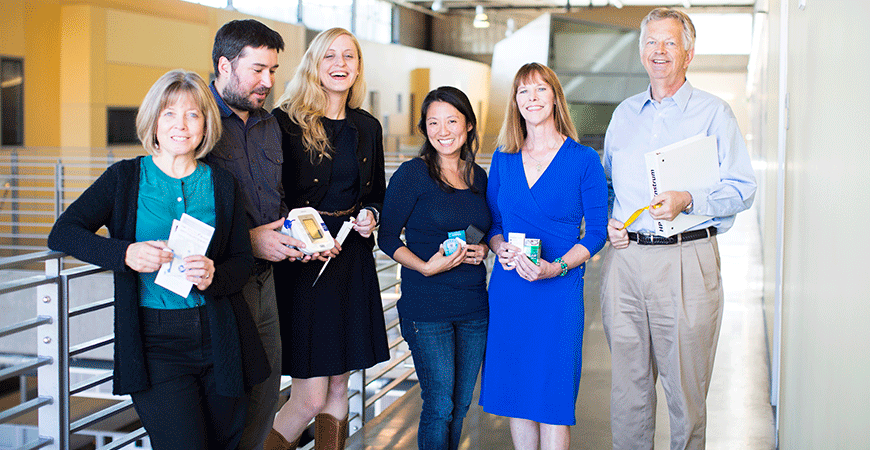
The Society of Pediatric Psychology has recognized Professor Deborah Wiebe for her body of research on the psychology of adolescent health.
Wiebe, the head of UC Merced’s Health Psychology program within the Psychological Sciences graduate group, won the Dennis Drotar Distinguished Research Award in Pediatric Psychology, which she accepted last week at the society’s annual meeting in Orlando. The award recognizes excellence and significant contributions in establishing the scientific base of pediatric psychology.
“I feel incredibly honored,” Wiebe said. “People I really admire have won this award in the past, and I am fortunate to be in their company.”
Wiebe, who joined the campus five years ago, focuses on how families interact, manage and cope when a child has a serious disease, specifically Type I diabetes.
“It’s a really challenging chronic illness because it requires constant attention every day,” she explained. She and her students look at how relationships change as families make the transitions between childhood and adolescence, and then out of adolescence as children grow up and take on the independent management of their illness. They also examine how and why self-management deteriorates across those age transitions, and what role family relationships such as parent-adolescent conflict plays in health outcomes and self-care.
“People always assume there is a lot of conflict with teenagers anyway, and there can be, and some of it can go really badly, but overall, conflict between parents and teenagers isn’t as common as people think,” Wiebe said. “We look at how conflict occurs and what can be done to make it better.”
“She is immensely generous with her intellectual resources and has served as an exceptionally skilled colleague and mentor of many early career pediatric psychologists who have later gone on to make valuable contributions to their chosen fields,” wrote Tim Wysocki, the co-director of the Center for Health Care Delivery Science in Jacksonville, Fla, in a letter supporting Wiebe’s nomination.
Like her colleague Professor Jan Wallander, who will receive a lifetime achievement award later this week (and who won the Drotar award a couple of years ago), Wiebe is part of a growing program that is drawing an increasing amount of recognition, as well as interest from students.
“It’s really meaningful for our students and for the program when we are recognized like this,” Wiebe said, “especially given how young our program is.”



